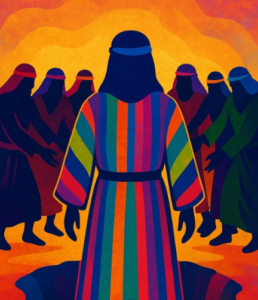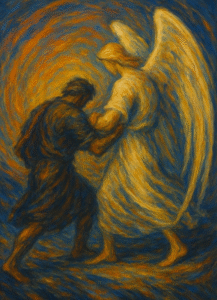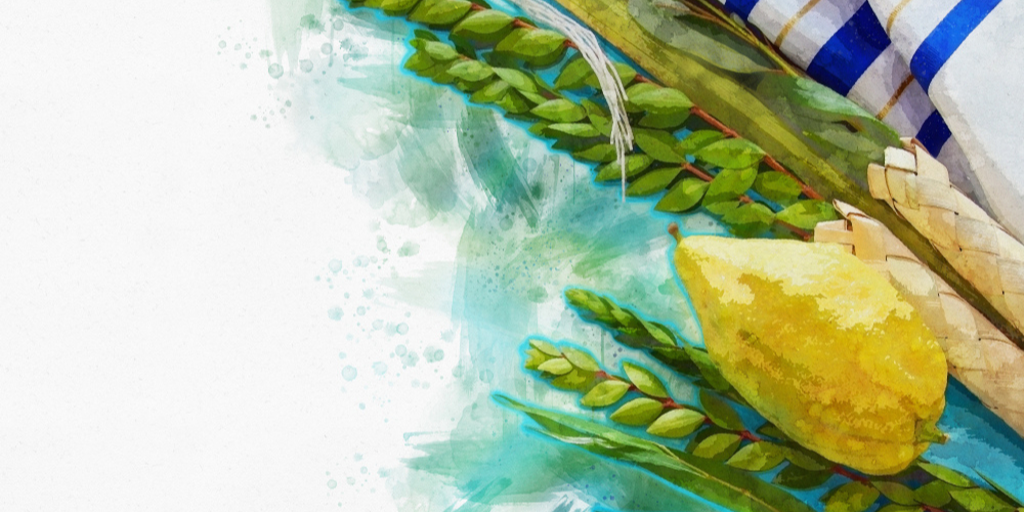- Faith ⬦ Prayer ⬦ Read ⬦ Shabbat ⬦ Weekly Torah Portion
The Things I Have Been Through in My Life – Parshat Ki Tavo
Lavan, Esav, Egypt—the list is long. Everything that the Nation of Israel went through, each Jew experiences in every generation. A person’s mood, the neighbor, a person’s financial situation, the annoying media—the list is long. The advice for all these things is to believe in hitchadshut—the ability of a person to create himself anew—and not to give up and despair. This is what our parsha teaches us with the mitzvah of “bikurim” (first fruits).
This week’s Torah portion is parshat “Ki Tavo.” The parsha opens with the commandment of bikurim or first fruits, which is a way of showing gratitude to the Creator who in His grace showers us with abundance. When the Beit HaMikdash (Temple) was still standing, a person would go down to his field and see a choice ripened fig (or another fruit from one of the seven species for which the Land of Israel is praised), and he would wind a reed around it as a sign that it was for the bikurim (see Rashi on Deuteronomy 26:2). Afterward, he would prepare a basket of bikurim. He would decorate the basket and bring it to Jerusalem with joyful song on decorated oxen. When he arrived at the Beit HaMikdash, he brought the basket of the bikurim to the kohen, and the kohen would offer the bikurim before the Lord.
The bringing of the bikurim would open with a monologue of thanksgiving to G-d, which included both personal and public confessions. A person would mention the troubles that had befallen the Nation of Israel in the start of its nationhood: during the time of Lavan and Jacob and then during their bondage in Egypt. He would then recall how G-d heard their cry from their suffering in bondage and redeemed them from Egypt, bringing them to the land they had yearned for, Israel. And now with the bringing of the bikurim, they would give thanks to the Creator who saved them from all these difficult events and excitedly conclude: “And now, behold, I have brought the first of the fruit of the ground which You, Lord, have given to me” (Deuteronomy 26:10). And this would happen every year.
Rabbi Natan gives us a new and original look at the commandment of the bikurim, which is connected to our own ability to cope with all of our struggles in daily life:
The mitzvah to bring our first fruits every year symbolizes renewal. We have difficulty renewing ourselves because our minds are full of thoughts from the past: “I have gone through so much! No matter how much I try, I fail. I am having such a hard time. It’s enough! How much more can I handle?!” The answer to this kind of thinking is the mitzvah of bikurim which is a way of renewing ourselves. We shouldn’t be alarmed about what we are going through. Just as we went through difficult times in the past and each time G-d saved us, so too will He give us the strength to overcome everything we are going through now.
The Torah is not a fairy tale—it is the story of my life, your life, and life of every Jew, of every single individual in every generation.
We learn this from the monologue of the one who brings the bikurim. It involves looking into the depths of the past and recalling the troubles and difficult experiences we went through as a nation. How Jacob suffered from Lavan—he tried to harm him, damage him, and deceive him. And yet, in the end Jacob came out victorious and managed to extract his daughters from him, who are our holy foremothers, Leah and Rachel, Bilhah and Zilpah, who gave birth to the holy tribes who revealed G-d to the world.
Then afterwards, Jacob suffered from Esav, and this was followed by the exile in Egypt. Our forefather Jacob was forced to go down to Egypt due to the famine. In Egypt the children of Israel multiplied, and the Egyptians clamped down on them and made them into slaves, embittering their lives. The children of Israel cried out to G-d to take them out of Egypt, and G-d in His mercy redeemed them from Egypt and brought them to the land of Israel. This is what we learn from the bikurim: not to become overwhelmed by everything that we went through in the past, because despite everything, we survived it.
These things apply to each and every individual because the Torah is not a fairy tale—it is the story of my life, your life, and life of every Jew, of every single individual in every generation. Just as HaKadosh Baruch Hu helped Jacob and the Nation of Israel to leave Egypt, so too will HaKadosh Baruch Hu help us, each and every one of us, as we say three times each day in prayer: “And for Your miracles that You do for us every day, and for Your wonders and Your goodness that are at all times, evening, and morning, and afternoon. You are good and Your mercy is never exhausted,” etc.
However, the list of difficult times did not end in Egypt. Afterwards there were more troubles: the exiles of Babylon, Media, Greece, and Rome. And the list is unfortunately very long. It is not possible to describe all the suffering that the Nation of Israel has gone through since then. Still, we know from the lessons of the past that G-d will save us from all our troubles.
Now we will apply these concepts to the spiritual realm as well. The fact is that Laban’s obsessive pursuit of Jacob, followed by Esav and the Egyptians and all those who followed them, was mainly due to spiritual reasons—because of our faith in the One G-d Who rules and oversees the world at every moment. Therefore, when we mention all the troubles and difficult events that happened to our ancestors and thank Him for the kindness He did with us when He saved us in the past, we know that these things also apply to each and every one of us in the spiritual sense, meaning that we will always overcome.
This holds true for every generation, and for each of us personally. Everyone can describe an unending list of problems and difficult events and experiences he has been through. Is there any way to escape from the difficult times? There is only one thing that can help: faith.

The commandment of the bikurim teaches us, to renew ourselves and to begin anew each time!
In our context, faith symbolizes renewing ourselves, as the verse says: “They are renewed every morning; great is Your faithfulness” (Lamentations 3:23). That is, we believe in the power of renewal, that we have the possibility of renewing ourselves. Even if we have suffered severe troubles and undergone many difficulties, and even if we have failed spiritually countless times so that it is difficult for us to cope spiritually, there is one simple solution: faith. Faith means believing that a person really cannot understand what is happening to him in this world or what the heavenly accounts are. We just have to do our part and believe in G-d that in any situation we can truly start anew. We must believe in Him, that He desires us no matter what we have done in the past or how many times we have failed, and we must always become strengthened through this faith.
Rabbi Natan quotes a famous phrase from the Talmud: “They said, and they said,” and interprets it in the context of what we mentioned above. The first “they said,” means that our sages told us how much a person should be careful to keep the commandments and beware of the slightest sin. They even taught us more than that—how much a person should be careful to stay away from the permissible desires so that he should be truly clean and holy. And yet, “they said,” that even if a person has committed serious and terrible sins, he should not give up and despair.
“They said and they said,” means that those who taught us that we are obligated to be careful not to sin, they themselves also taught us how much a person should strengthen himself even after sinning and start again. He should start anew as if he had never sinned in his life. And they also taught us that it is impossible to describe the pleasure and joy that the Creator has when a Jew returns to Him, even if he has done innumerable sins. G-d wants very much that we should repent for our sins. And on the contrary, they taught us that the further away a person is when he returns to G-d, the more G-d’s honor is increased and elevated (as is explained in Likutei Moharan I, 10).
This is what the commandment of the bikurim teaches us, to renew ourselves and to begin anew each time, for the essence of the Creation was for this renewal. And for this purpose, G-d renews the creation daily, as we say in prayer: “He renews in his goodness every day the act of Creation.” And we also say, “He makes new things.” This is the real renewal, and these are the most wonderful forms of “newness” that man can recreate himself anew every day.
Now, the words of the Midrash can be understood in a wonderful light. The Midrash teaches: “Bereishit bara Elokim” (literally translated as “In the beginning, G-d Created”). “Bereishit” is for the bikurim, which are called “reishit.” “Bara Elokim,” means the world was created. The bikurim are called first, because the mitzvah is to take the fruits that are first ones to ripen as the verse says: “You shall take of the first of all the fruit of the earth” (Deuteronomy 26:2). In our context, Rabbi Natan explains, the meaning is that the Creator created the world for the “bereishit,” the beginning, that man should be strengthened in his faith every time anew, so that he will once again strengthen his faith in the Creator who desires us and desires our repentance and service, beginning every day and every time anew to serve G-d.
(Based on Likutei Halachot, Basar v’Chalav 4:13)
- bereishitbikurimbreslevBreslovCreationDvar Torah for Parshat Ki Tavoemunahexile in Egyptexiles of Babylonexodus from Egyptfaithfeaturedfour mothersfressh startJewishjudaismki savoki tavoLavanLeah and RachelLikutey HalachotLikutey MoharanmediaNation of Israelnew beginningsParshat Ki Tavopersonal strugglesReb NosonRebbe Nachmanredemptiomreturn to G-dstart againthree fathersTorahTzaddik
- 0 comment






















